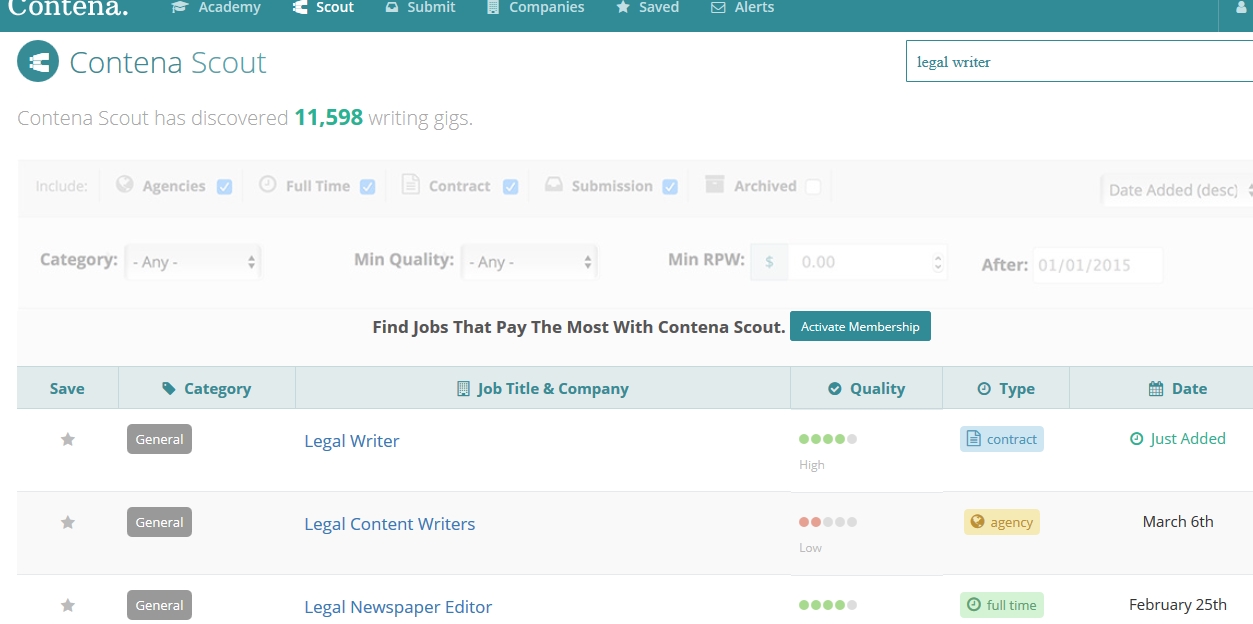How would you like to write greeting cards and get paid to do so?
Are you a pro at delivering just the right sentiment at the right time in written form?
Do you take photos or create images that are so gorgeous your friends often claim them as their own?
If yes, then you may have the necessary skills to make money as a greeting card writer, photographer, and/or designer.
Most freelancers don’t consider greeting card companies as a place where they can find online work.
However, opportunities are definitely available.
While you’ll be hard-pressed to find out how much money you can get for accepted submissions, know that most greeting card companies offer compensation ranging from $25 to $300 per accepted submission.
Also, because there are many companies out there, you have a good likelihood of finding a fit between your talents and sentimental outlook, as well as the mission of the company.
How to Work for Hallmark
There isn’t a bigger name in the greeting card industry than Hallmark.
Unfortunately, they do not accept outside or freelance greeting card submissions.
They hire in-office at their corporate headquarters in Kansas City, Missouri.
If you happen to live locally, check Hallmark’s careers page often as creative jobs do pop up from time to time.
25 Greeting Card Companies Accepting Submissions
Without further ado, here are 25 companies looking for your heartfelt verses, photos, and artwork:
1. Amber Lotus Publishing
Amber Lotus Publishing is a carbon-negative independent publisher guided by the principles of Right Livelihood; that is, doing the greatest good with the least possible harm.
They only accept photo and art submissions from April to July only.
As for greeting cards, they are accepted all year round.
However, they currently not accepting new writing submissions, including greeting card verses.
Bookmark this page so you can check back later.
2. American Greetings
Founded in 1906, American Greetings has been publishing and selling paper cards, gift wrap, and more for
They normally don’t accept unsolicited submissions, but try to send your ideas to the following address:
Idea Submission Team, American Greetings Corporation
One American Boulevard
Cleveland, Ohio 44145-8151
Other freelance opportunities are listed on the company’s Job Opportunities website.
3. Avanti Press
This company accepts both written content and photos.
Avanti Press prefers lo-res digital imagery submitted as jpegs via this form.
Other formats they accept via snail mail – you just have to send your submissions here:
Avanti Press, Inc.
Art Submissions Department
6 West 18th Street, 6th Floor
New York, NY 10011
4. Blue Mountain Arts
Blue Mountain Arts may be one of the highest-paying companies on this list.
It’s no surprise that it’s also the most competitive.
They’re looking for contemporary prose and poetry from 50 to 300 words in length, written from personal experience.
This established greeting card publisher works with freelancers and pays fairly well for poem-form content; accepted pieces are paid $300.
Submit the text of your work in the submission form (link above) or through email to editorial [at] sps [dot] com and include your name and address.
The company also accepts postal submissions. Send your poetry to:
Blue Mountain Arts Editorial Department
P.O. Box 1007
Boulder, CO 80306
If you live outside the United States, your work can still be accepted as long as the submission is in the English language.
5. Calypso Cards
This greeting card company publishes several lines of greeting cards, ranging from contemporary to sophisticated.
They invite submissions of artwork and illustrations for occasions and holidays.
See their submission page for more detailed instructions and schedules.
Calypso Cards review submissions several times a year.
However, they only respond to those whose artwork or ideas they select.
6. Caspari
Caspari is currently seeking illustrations (not photographic artwork) for its greeting cards.
Submissions are reviewed individually based on artistic merit.
Send your submissions to artworksubmissions [at] hgcaspari [dot] com through an attachment or a link to download or preview the artwork from another location.
The Caspari email only allows for attachments up to 6mb per email, so be sure to check file size before sending your submissions.
7. Crown Point Graphics
This site welcomes greeting card art submissions.
While not much detail is provided on the website, you can contact them at their contact page for more information.
8. Fotofolio
You can submit your color and black and white photography for consideration and publication in postcard, notecard, poster, and t-shirt formats.
They do not accept digital files, though you can email them a link to view your work to submissions [at] fotofolio [dot] com.
9. Great Arrow
Great Arrow is a greeting card company that prides itself on its handmade cards, produced through a hand silk-screening process that dates back centuries.
They collaborate with more than 100 designers and receive thousands of submissions a year.
However, Great Arrow does have deadlines, so take note if you plan to submit this year.
You can download detailed submission guidelines and deadlines from the website.
10. It Takes Two
While most of this company’s work is completed in-house, it does occasionally accept outside submissions by designers and writers.
11. Leanin’ Tree
Leanin’ Tree accepts art submissions year-round for upcoming holidays.
This greeting card company offers in-depth information on submitting artwork for various holidays and other festive occasions.
Leanin’ Tree prefers to receive digital submissions as either multi-page PDF documents or jpegs.
All art submissions must be sent digitally and submitted via email to art.submissions (at) leanintree.com.
Make sure to check their full schedule of upcoming deadlines on their art submission page.
12. NobleWorks Cards
NobleWorks is continually on the lookout for “funny, unique, risqué, and carefully-crafted cards” for their online store.
NobleWorks has an annual schedule for card introductions.
Aside from the limit of 20 verses or images per introduction, submissions also have a few guidelines you should meet.
Fill out their online contact form so they can send you their guidelines for artists, writers, and cartoonists.
13. Oatmeal Studios
This greeting card company has been around for 40 years.
Chances are you’ve seen their card in a department store and chuckled to yourself.
Oatmeal Studios reportedly pay around $75 per submission.
Both written content and artistic illustrations from freelancers are welcome for submission.
14. Palm Press
Palm Press covers basically every major holiday and life event.
Best of all, submissions are accepted year-round here.
While the greeting card company does allow digital submissions, you may also send your physical submissions to:
Palm Press Inc.
11 Executive Ave.
Edison, NJ 08817
Palm Press will contact you if one of your images has been selected for publication.
You can expect a reply to your submissions within 2 to 3 weeks, making Palm Press one of the fastest companies on this list.
15. Planet Zoo
If you’re into nature photography, then this might be a good fit for you.
Planet Zoo is an environmentally responsible publisher of various gift and stationery products, including greeting cards, featuring wildlife in their natural habitats as well as gorgeous scenery.
They accept up to 10 low-resolution images of animals in their natural habitat.
They do not accept submissions of animals in zoos or interacting with manmade objects.
Note that Planet Zoo doesn’t respond to everyone. They will only contact you if they like your photo submission.
16. Pomegranate
Pomegranate is an Oregon-based independent publisher creating various stationery products, including holiday cards.
They accept fine art, illustrations, and photography, and offer a simple online form to fill out. You’ll be contacted back within eight weeks.
17. R.S.V.P. Sellers
Sellers Publishing, which is under the RSVP umbrella, seeks both written content and artwork for its lines of notecards and greeting cards.
You can send up to 20 images per single submission.
While they accept submissions all year round, your best chance is to submit materials between March and October.
18. Shade Tree Greetings
This New York-based greeting card company has a line of greeting cards called Actual Pictures, featuring, you guessed it, actual photos sent in by customers.
If you have any old (think 1940s to 1980s) photos depicting something unusual or funny, send them a copy and see them immortalized on greeting cards.
19. Snafu Designs
SNAFU Designs started in a basement and has since expanded to a 1,500-square-foot warehouse creating and sending cards out to all 50 states and Canada.
Their target audience is those who get smart adult humor.
They’re currently not accepting card ideas, but check back on their Writer’s Guidelines page for future openings.
20. The Greeting Card Shop
The Greeting Card Shop allows you to find just the right card for an occasion or milestone, and it allows you to personalize these cards.
You can inquire about greeting card submission and approval by sending a message to this e-mail address: art (at) thegreetingcardshop.com
21. Up With Paper
This company is currently soliciting new freelance talent; you can either reach out to them through email or submit your portfolio.
Up with Paper is always on the lookout for new talent and trend-setting designs to add to their award winning collections.
If you would like to submit your portfolio for consideration for illustration, you can reach out via this form.
22. Viabella
Viabella has been around since 1941, publishing greeting cards and other stationery products.
They welcome submissions from artists and writers. You can expect to get $150 to $250 per artwork or photograph, while it’s $50 to $100 per verse.
All submissions need to go through their respective Submissions Pages for Art and Verse.
Viabella does close submission forms every now and then.
23. Warner Press
Warner Press is a not-for-profit organization affiliated with the Church of God in Anderson, Indiana that publishes various non-denominational Christian products, including greeting cards.
There are pretty specific guidelines before your submission can be considered, so make sure to adhere to their submission guidelines.
24. Design House Greetings
Design House Greetings is open to outside submissions, but they will only respond to artists if they want to work with them.
Don’t expect any rejection letters.
If you’ve ever seen the card section at Trader Joe’s, you’ll be familiar with the designs these guys are after.
25. Papyrus
Papyrus publishes cards that “elevate everyday living” and celebrate moments of all sorts.
Unlike most greeting card companies here, Papyrus only accepts freelance submissions for verse via postal mail.
Before submissions, just make sure to read their guidelines.
Where Else to find Greeting Card Companies To Work With
The Greeting Card Association is a trade association serving the greeting card industry and promoting the tradition of sending and receiving greeting cards.
They have an extensive member directory where the websites and addresses are included.
How to Successfully Get Paid for Your Art and Writing
The first skill you need to have is the research skills to look at the existing stock of greeting cards that each company offers. Look at the visual elements, design, writing, even the font they normally use.
Next, you’ll have to be able to decide whether your art or writing is a good fit for the companies you’re looking at.
Perhaps the most important skill that you need to learn when dealing with greeting card companies is reading and following instructions.
With few exceptions, companies who do work with submissions have specific guidelines: from the format to the content to where it is to be sent.
You may be a great artist and your work may look like a good fit, but if you don’t follow instructions, you might find it hard to find companies willing to work with you.
Lastly, you’ll need patience.
Larger companies process hundreds to thousands of submissions, and even smaller, independent ones process dozens.
It may take weeks before anyone gets back to you, if at all.
Greeting Card Companies not Replying too Quickly?
It’s awesome to work on something and be accepted (out of hundreds of submissions). But greeting card companies often get flooded by submissions and can take awhile to respond.
Also, you’re not going to get rich writing or designing greeting cards, but it can be a fun hobby to earn some extra cash in your spare time.
If writing for greeting card companies doesn’t feel like a good fit, there are plenty of other ways to get paid to write, such as jingle writing.
And as for visual artists and illustrators, there are other freelance jobs that pay you for your creativity. I wrote a guide on monetizing your artistic skills here, if you’re interested.






































